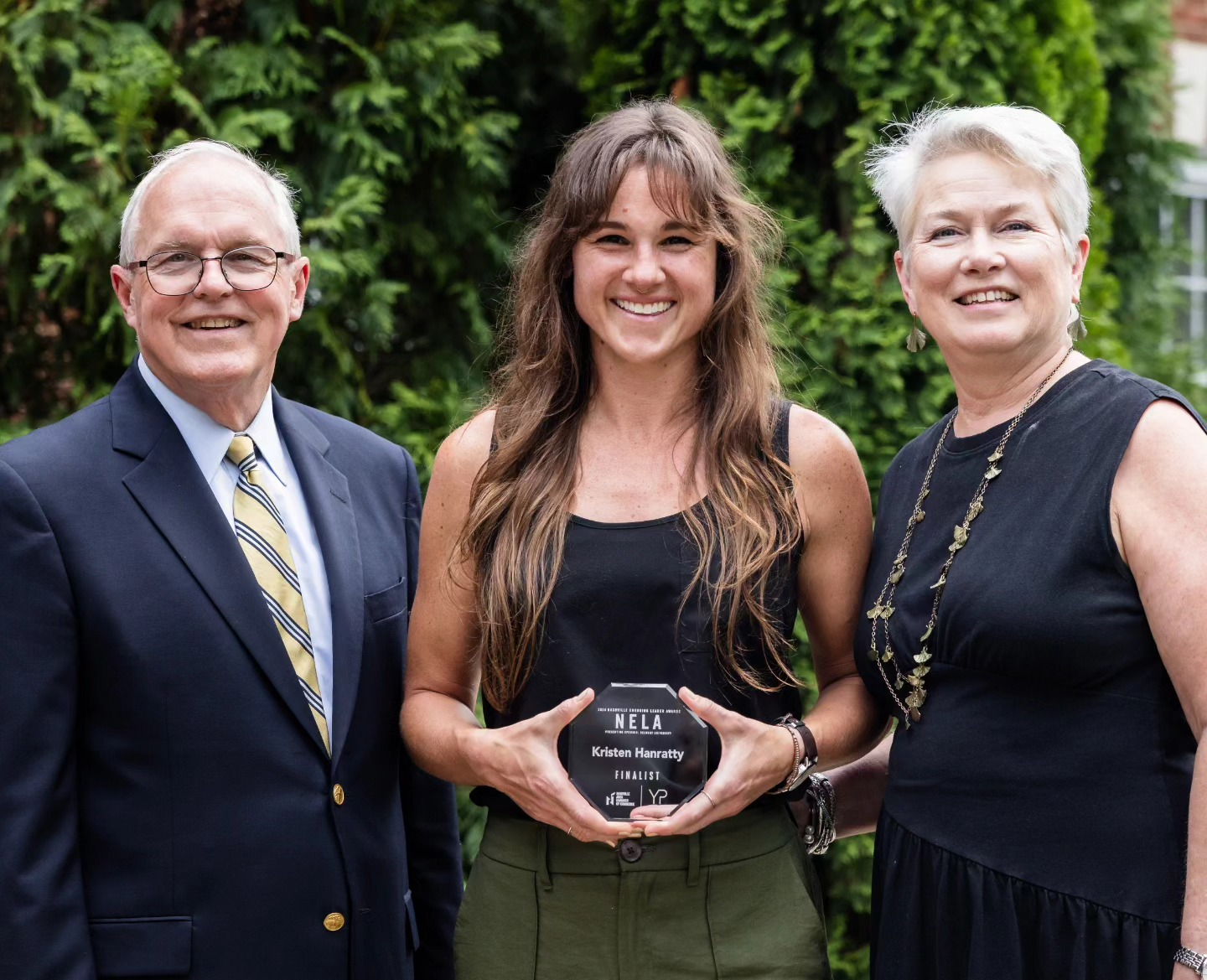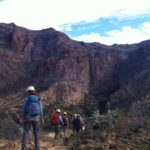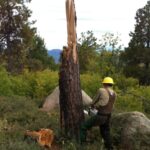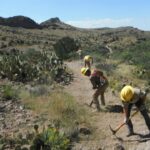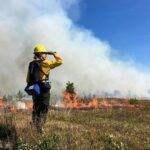“I’ve always had an inherent love for the environment and a concern about our impact on the natural world. And as Tennessee’s population continues to grow, residential and industrial development are necessary. However, it is critical that this growth is done in the most sustainable way—with not only flora and fauna in mind—but the wellbeing of people.”
—Kristen Hanratty
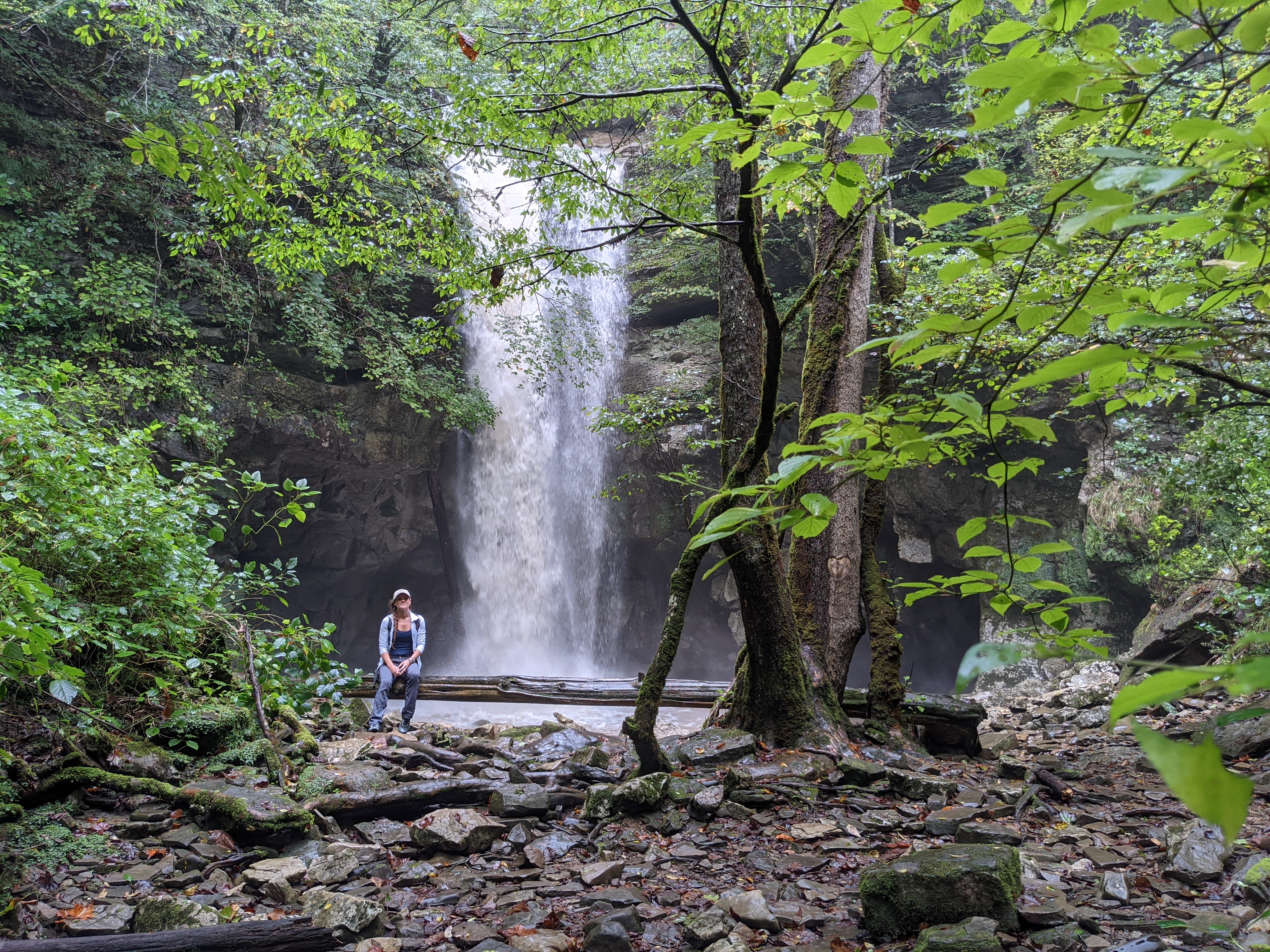
A Nashville resident and daughter of a commercial construction executive, Kristen Hanratty always planned to pursue a career in the environmental world. After earning a bachelor’s degree in environmental science from the University of Central Florida, Kristen held many seasonal jobs to explore various ecosystems and grow her conservation skillset: firefighting in northern New Hampshire, soil restoration in Hawaii, and invasive species management in Central Florida among them. One of her favorite experiences was with the Southwest Conservation Corps, based out of Tucson, AZ.
“Our projects and locations would change every other week. One week we would run chainsaws and construct trails in Tonto National Forest; and the next week we’d build rock cairns and manage invasive species in Saguaro National Park.” And the best perk? “We camped on the job!”
All these adventures eventually led Kristen to the Volunteer State. The most biodiverse inland state, Kristen felt she could experience the best of all worlds here—from the rolling farms and precious wetlands of West Tennessee, to the endemic cedar glades and limestone caves of Middle Tennessee, all the way to the savannahs and majestic Smokies of East Tennessee.
TennGreen Land Conservancy works statewide to protect all of these ecosystems and more.
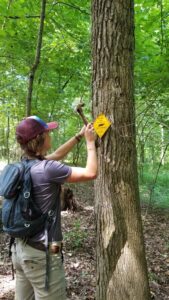 TennGreen uses two primary tools to do so: 1) Acquisition, or purchasing land with or on behalf of a partner, such as the State of Tennessee, to establish or expand public land—like Lockeland Springs Park in Nashville, for example. 2) Conservation easements, basically a super strict, voluntary deed restriction on one’s property that lasts forever. As Conservation Project Manager, Kristen oversees the latter.
TennGreen uses two primary tools to do so: 1) Acquisition, or purchasing land with or on behalf of a partner, such as the State of Tennessee, to establish or expand public land—like Lockeland Springs Park in Nashville, for example. 2) Conservation easements, basically a super strict, voluntary deed restriction on one’s property that lasts forever. As Conservation Project Manager, Kristen oversees the latter.
“A conservation easement is a way to safeguard land from future risks, like development or resource extraction, that could harm the conservation values,” says Kristen. “I work with the landowner to decide the terms and restrictions that fit the land and align with the landowner’s vision. I facilitate the whole process—from the application, due diligence, baseline documentation, and final recording.” In short, Kristen is the connection between landowner and TennGreen.
Private land conservation enables individuals and families to retain ownership of their land while still protecting its environmental values. According to Defenders of Wildlife, privately conserved lands support more than two-thirds of the species listed under the Endangered Species Act; and ten percent of those species exclusively occur on private lands (to learn more about what a conservation easement is and how to attain one, visit tenngreen.org).
“It is critical that [development] is done in the most sustainable way—with not only flora and fauna in mind—but the wellbeing of people.”
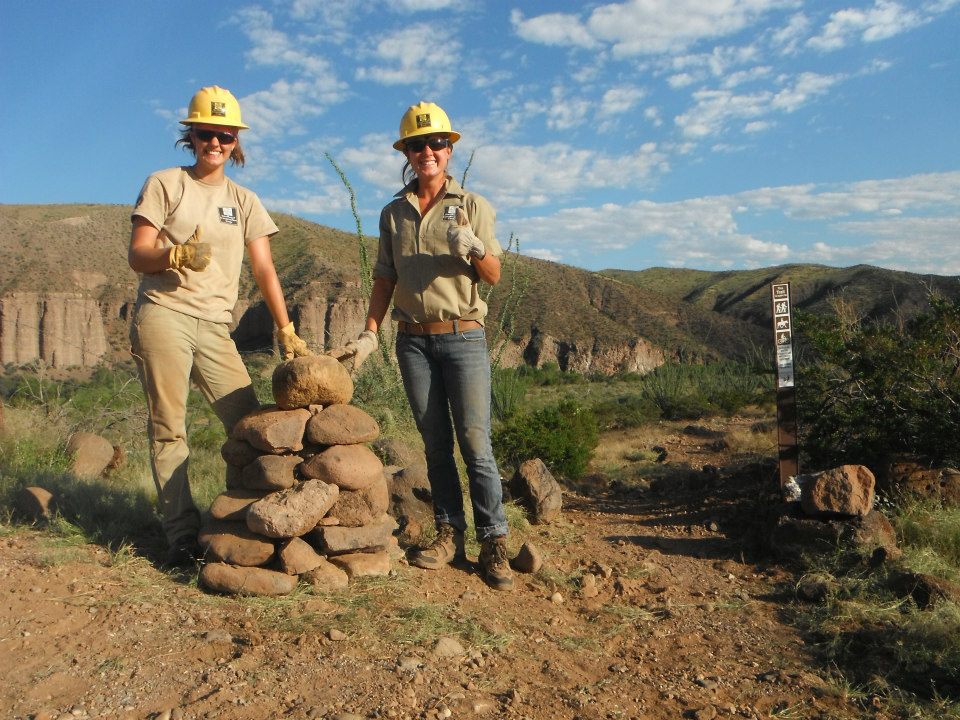
In addition to project management, Kristen stays abreast of all things conservation, and represents TennGreen in several initiatives, like Thrive Regional Partnership and the American Farmland Trust’s Tennessee Farmland Roundtable.
Her work at TennGreen is dynamic, but conservation is never straightforward. One of her greatest challenges is helping determine the focus of TennGreen’s conservation easements across the entire state (the Strategic Land Conservation Plan has been immensely helpful in guiding conservation easements). In 2023, Kristen proudly celebrated completing the most conservation easements—seven projects spanning 660 acres—in one year.
Kristen Hanratty’s Sources of inspiration
Working in the environmental field requires resilience, and Kristen often looks to other powerful women in this arena for further encouragement. “I’m inspired by the work of environmental activists and conservationists. Especially those who fight for environmental justice and underrepresented ecosystems (e.g., swamps, wetlands, grasslands). I especially admire Marjory Stoneman Douglas’s work around the Everglades and Winona LaDuke’s fight for native land rights.”
And her advice for other young conservationists?
“If you’re able, try everything and volunteer where you can. It’s been an incredible advantage to have accrued knowledge at various conservation organizations located in different regions of the U.S., each requiring different skill sets. Networking and passion will grant you bounteous experience, which will only propel you forward,” says Kristen.
“It’s fun to look back and remember the times my legs were cut up by saw palmetto during invasive species surveys, or when I got sick after a prescribed burn day because I had inhaled so much smoke, or washing my hair in the Safeway bathroom sink after seven days in the field, and think, Wow…. Look where I’m at now.”
by Maria Maring
Land Conservation Coordinator

